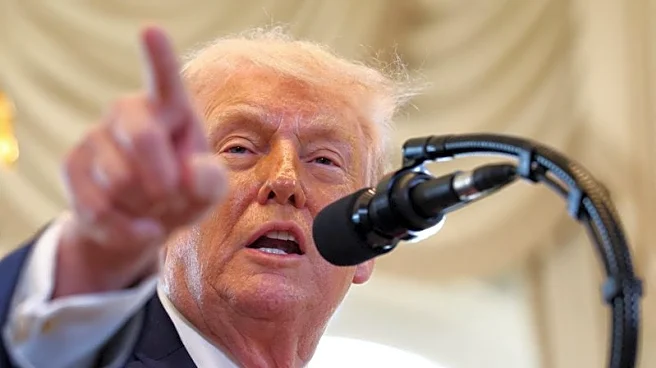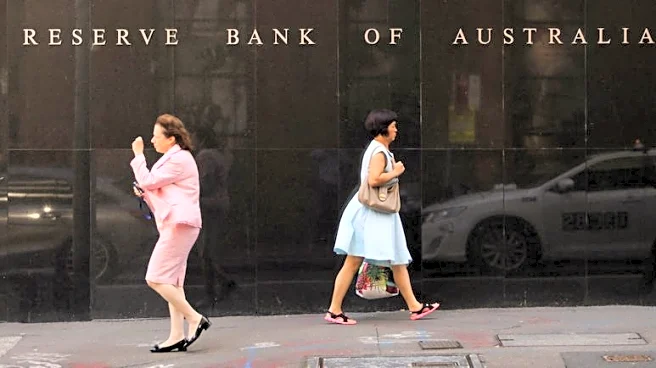Rapid Read • 7 min read
The debt ceiling, established under the Second Liberty Bond Act of 1917, is the maximum amount the U.S. government can borrow to meet its legal obligations. It has been raised or suspended numerous times to avoid default. Political brinkmanship over the debt ceiling has led to government shutdowns and economic disruptions. Notable crises include the 1995 standoff between President Clinton and House Speaker Gingrich, and the 2011 crisis under President Obama, which resulted in a credit rating downgrade. The debt ceiling was suspended in 2023 and reinstated in January 2025 at $36.1 trillion, with the Treasury using 'extraordinary measures' to avoid default.
AD
The debt ceiling is crucial for maintaining fiscal responsibility and funding government operations. Political negotiations surrounding the debt ceiling can impact public policy and economic strategies. The ongoing brinkmanship could affect the U.S.'s reputation in global markets and its credit rating, influencing long-term economic growth. The debt ceiling debate raises ethical and social questions about the impact on public services and social programs.
Congress must act to address the debt ceiling before the extraordinary measures are exhausted. Political leaders may seek to include a debt ceiling increase in a forthcoming reconciliation package. The Treasury Department will continue using extraordinary measures to delay default, but these measures are temporary. The political landscape, including President-elect Trump's suggestions and House Speaker Mike Johnson's plans, will play a role in shaping the outcome of these negotiations.
The debt ceiling debate highlights broader issues of fiscal responsibility and economic policy. The potential for spending cuts raises ethical and social questions about the impact on public services and social programs. The ongoing political brinkmanship could affect the U.S.'s reputation in global markets and its credit rating, influencing long-term economic growth and fiscal health.
AD
More Stories You Might Enjoy












